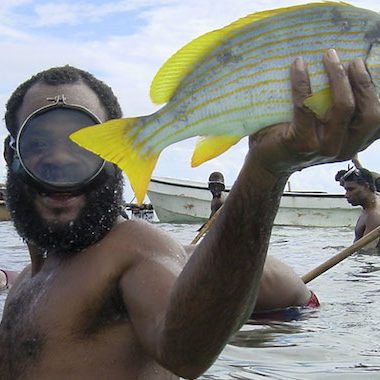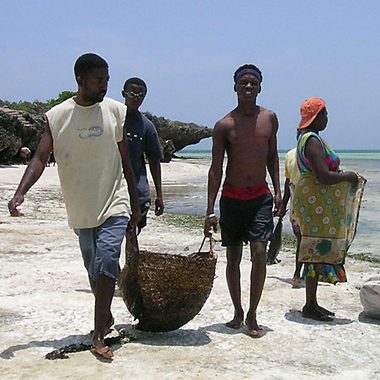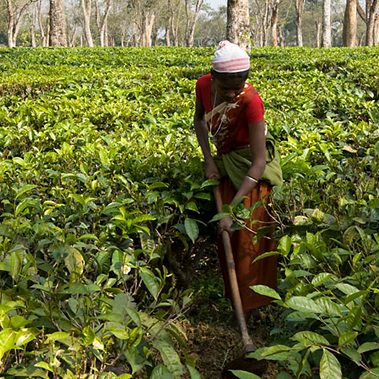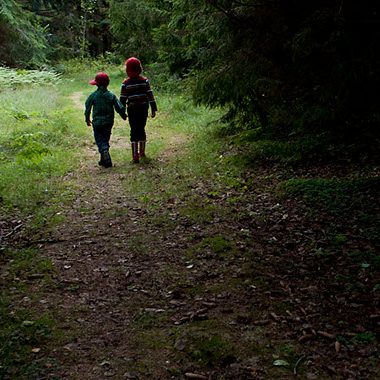REPICORE
The Pacific Islands are a region where societies are closely linked to the coral reef ecosystems surrounding them.
At the same time, the region’s reefs are strongly affected by global environmental and socio-economic changes such as changes in seawater temperature and level and an increasing integration of local markets with the global economy. The close social-ecological connectedness in the area potentially reinforces these impacts and results in a situation where environmental change can have particularly severe consequences for local societies. Yet, research into the resilience of these linked social-ecological reef systems in the face of global changes is in its infancy. REPICORE combines social and natural sciences for an integrated assessment to achieve a more holistic understanding of coupled social-ecological systems. Marine resource use and coastal livelihoods are examined across three Melanesian countries in conjunction with field assessments of reef fish and benthic communities. This is combined with meta-analyses of reef fish community and associated socio-economic data and an assessment of marine governance structures in the region. The overall aim is an improved understanding of social-ecological feedbacks that erode or strengthen resilience. The project brings together leading international experts on social-ecological resilience assessment, and links up with institutions in the Pacific Islands. The project aims to link outcomes to regional decision makers via science-to-policy workshops and policy briefs.
Key features
REPICORE combines socio-economic and ecological field research in the South Pacific region with a meta-analysis of a circumtropical dataset. It is thus highly interdisciplinary in conceptualization and implementation, producing both contextual, locally relevant and wider-ranging results. Field research is focused on Melanesia. Research in REPICORE addresses five connected themes:
- Fish community composition and fish-habitat associations.
- Coral reef benthic community function and dynamics.
- Marine resource use and coastal livelihoods.
- Resilience indicators and their response to socio-economic and environmental impacts.
- Governance structures for the sustainable use of coral reef resources.
The different themes build upon and link into each other, with results from specific themes feeding into the research in other themes. While the REPICORE umbrella comprises several doctoral studies rooted in particular scientific disciplines, these individual threads are linked via an overarching social-ecological systems framework, leading to a holistic understanding of a closely coupled, complex system and producing interdisciplinary outcomes. REPICORE has developed a network of experts from different disciplines and strives to link with research and governance institutions in the Pacific Region to contribute to capacity building and marine resource management in the South Pacific.
Led by
Sebastian Ferse (Leibniz Center for Tropical Marine Ecology (ZMT), Bremen, Germany)
Additional Partners
- Albert Norström (Stockholm Resilience Centre, Stockholm University, Sweden)
- Maggy Nugues (Centre de Biologie et d’Ecologie Tropicale et Méditerranéenne (CBETM), Université de Perpignan (UPVD), France and Centre de Recherche Insulaire et Observatoire de l’Environnement (CRIOBE), Papetoai, Moorea, French Polynesia)
- Joshua Cinner (Australian Research Council Centre of Excellence for Coral Reef Studies, James Cook University, Townsville, Australia)
- Shankar Aswani (Department of Anthropology, Rhodes University, Grahamstown, South Africa)
- Camilo Mora (Department of Geography, University of Hawaii at Manoa, USA) Coastal Fisheries Program (CFP), Division of Fisheries, Aquaculture and Marine Ecosystems (FAME), Secretariat of the Pacific Community (SPC), Noumea, New Caledonia
Publications
Algae sediment dynamics are mediated by herbivorous fishes on a nearshore coral reef
A legal pluralism perspective on coastal fisheries governance in two Pacific Island countries




